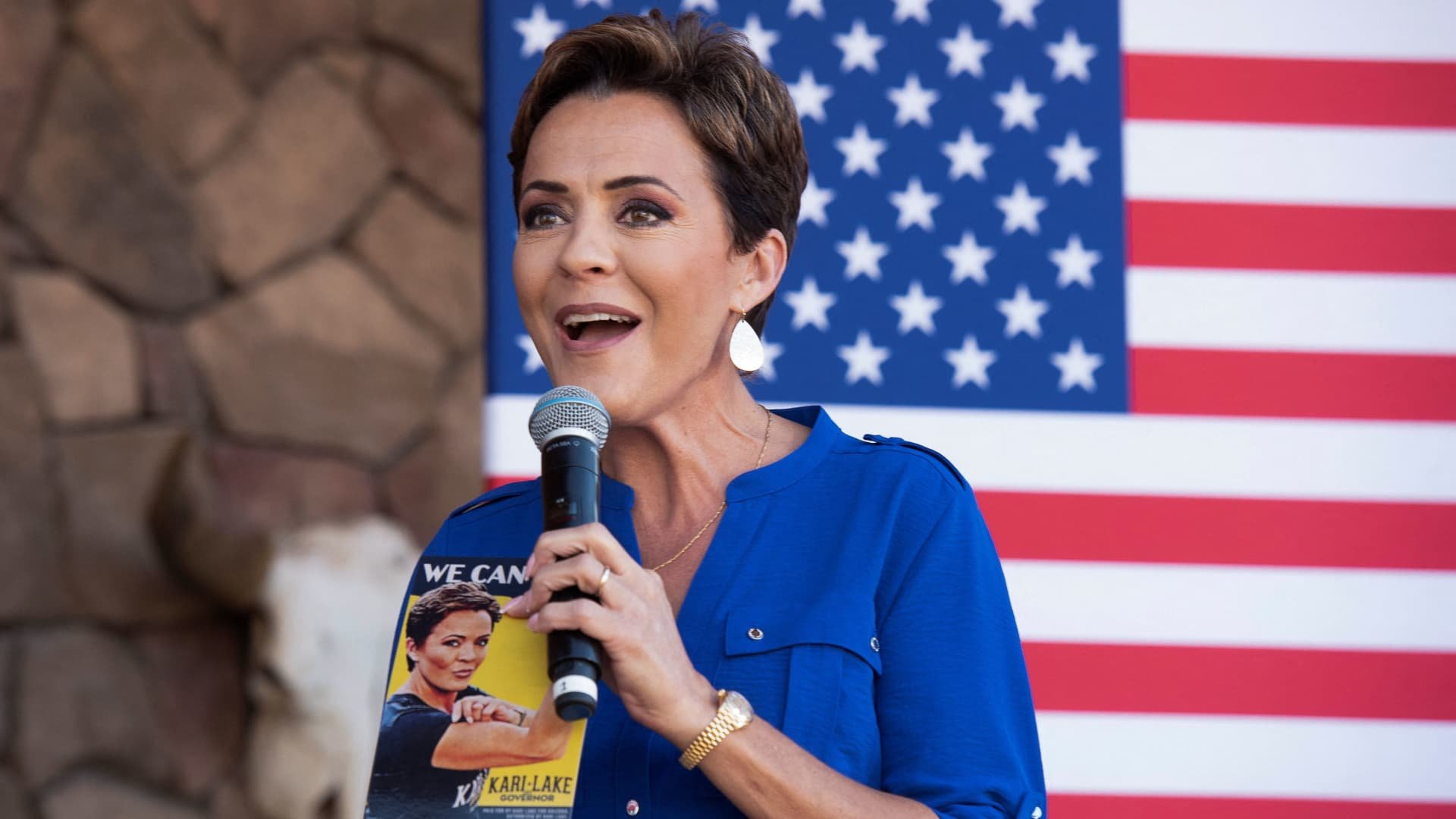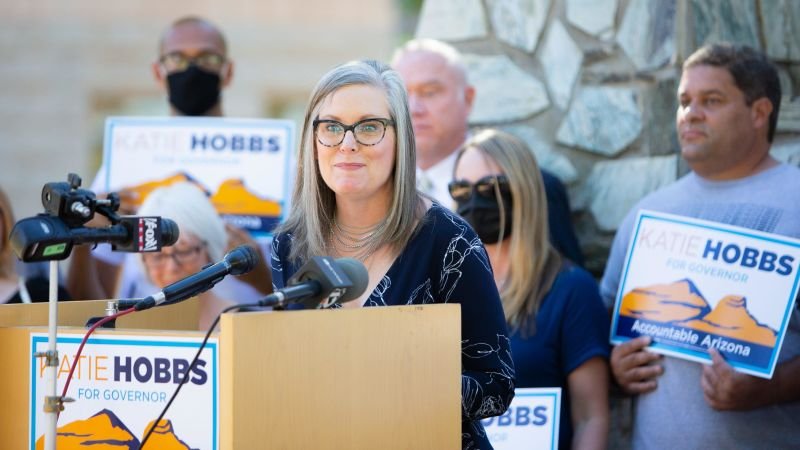When It Comes to Debates, Democrats Could Learn From Katie Hobbs
Article by Lorenzo Levy, TPT Staff Writer
The ritual of the political debate, at least on its surface, is an equalizing affair. Two candidates take time off of their campaign schedule and come to the same place at the same time to meet and shake hands as equal candidates. Historically, this aspect of the debate usually boiled down to little more than a formality for the candidates to appear bipartisan to voters. However, in today’s political climate, this seemingly innocuous and benign tradition has a darker potential to work against democracy.
Arizona’s Secretary of State and current Democratic nominee for governor Katie Hobbs made news recently for declining to participate in a traditional debate with her MAGA-Republican opponent Kari Lake. Before you begin invoking the hallowed history of Lincoln and Douglas and call Secretary Hobbs a democracy-hating coward, ponder a minute about the potential upsides to this maneuver and the potential downsides to capitulating to a debate with an extremist like Lake.
As extreme and toxic as the current Republican party is, Kari Lake is extreme even for a Republican. Among other things, she has aligned herself with Q-Anon and Nazi-sympathizers. She has called for Katie Hobbs’ arrest and imprisonment for not decertifying the 2020 election results in Arizona, even as Hobbs continues to receive actual death threats from disgruntled Trump supporters. What can charitably be called Lake’s “policy” proposals include sending the military to the US-Mexico border, putting cameras in classrooms, and allowing civilians to own and use rocket launchers under the 2nd Amendment.
Even for MAGA Republicans, this is not normal. Engaging Lake in a debate would imply that it is just politics as usual. The election becomes framed as traditional Democrats versus traditional Republicans, as opposed to the reality: an election between traditional Democrats and fascist-adjacent MAGA Republicans.
It should be noted that the US tried to solve the problem of seditious candidates in the Fourteenth Amendment to the Constitution, which barred those who “engaged in insurrection” against the US or gave “aid or comfort to the enemies'' of the US from running for office. Although a commonsense interpretation of this clause would preclude January 6th abetters like Lake from holding office, US court jurisprudence has gone in a less than commonsense direction. Therefore, it befalls Democrats to do our part to make it clear that wannabe insurrectionists have no place in American politics. Refusing to engage insurrectionist Republicans in a debate is merely a reflection of the reality that they are beyond the bounds of what is acceptable.
There are issues to be had with the debate system beyond normalizing extremism. One big concern is the “expectations game.” As has increasingly been the case recently, competent and educated Democrats run against incompetent and dimwitted Republicans. Therefore, the expectations from the media and the public are for the Democrat to perform well in the debate and for the Republican to bomb. If the Republican manages to be any less incompetent than expected, they are rewarded by getting the distinction of “exceeding expectations,” whereas Democrats have to exhibit the rhetorical skills of Plato just to meet expectations. Furthermore, if the Democrat makes one too many inconsequential slip-ups, then they fail to meet expectations. Debates reward incompetence in candidates.
Debates also have the potential to be harmful in primary environments. Katie Hobbs was the presumptive Democratic nominee for governor the instant she announced her campaign. She was the only Democrat running who had won a statewide election before. As the chief elections officer in Arizona, Hobbs is nothing short of a local hero among Arizona Democrats for not only being one of the handful of Democrats to win a statewide election but also for triumphing over Republicans’ obstructionism and threats of violence. The polling reflected her strength in the primary. Early polls predicted Hobbs having a whopping 20-point lead over the next highest candidate. She ended up winning the nomination by nearly 50 points. Therefore, Katie Hobbs did not participate in a primary debate. And why should she have? Just so she could be slandered with discredited, overblown, and out-of-context accusations? The closest thing Katie Hobbs had to a viable primary opponent was Marco Lopez Jr., a long-shot candidate with minimal name-recognition and governing experience, so why should Democrats give him a chance to slander our best chance at preventing Kari Lake from becoming governor?
In fact, more vicious primaries have been linked to less chance at success in the general. Ted Kennedy’s primary challenge to President Jimmy Carter in 1980, although ultimately unsuccessful, arguably weakened Carter as a candidate in the general election. This paved the way for Ronald Reagan to reign for eight years. For a more recent example, you might remember the “Bernie or Bust” movement that coalesced out of Bernie Sanders’ attacks on Hillary Clinton in 2016. Primary polling in 2015 showed that primary debating weakened Clinton’s support in the primaries. Trump’s electoral college victory came down to three states won by less than a percentage point, so it is quite possible that it was the debates that gave Sanders a large enough platform to stir up resentment for the presumptive nominee.
This November, the stakes are between democracy and sedition, decency and wickedness. Having debates will not help our democracy if they end up promoting anti-democracy candidates. Surely abiding by the vague platitude that “debates are necessary for democracy” is worth less to us than actually making sure we have a democracy.
The views articulated in this piece are the writer’s own, and do not reflect the official stances of The Progressive Teen or HSDA at large.


